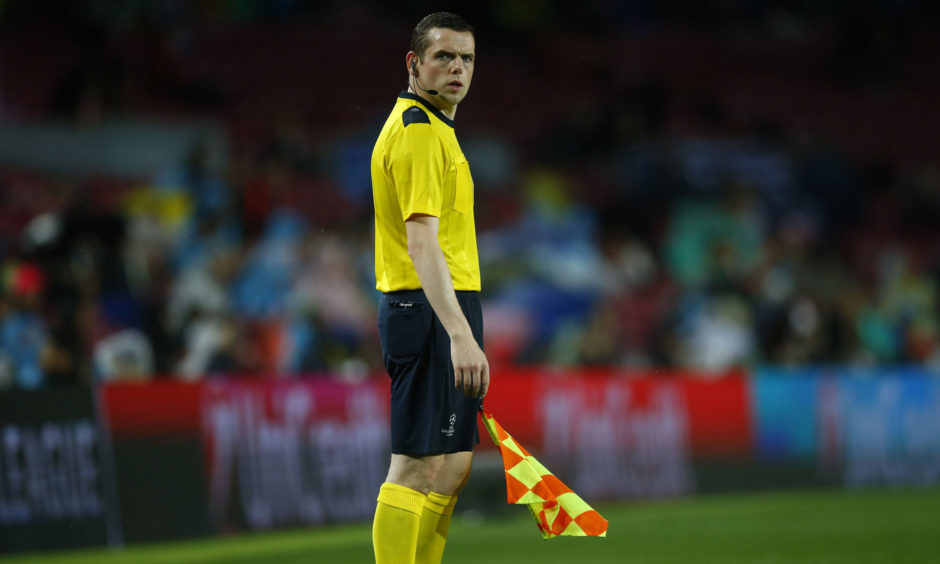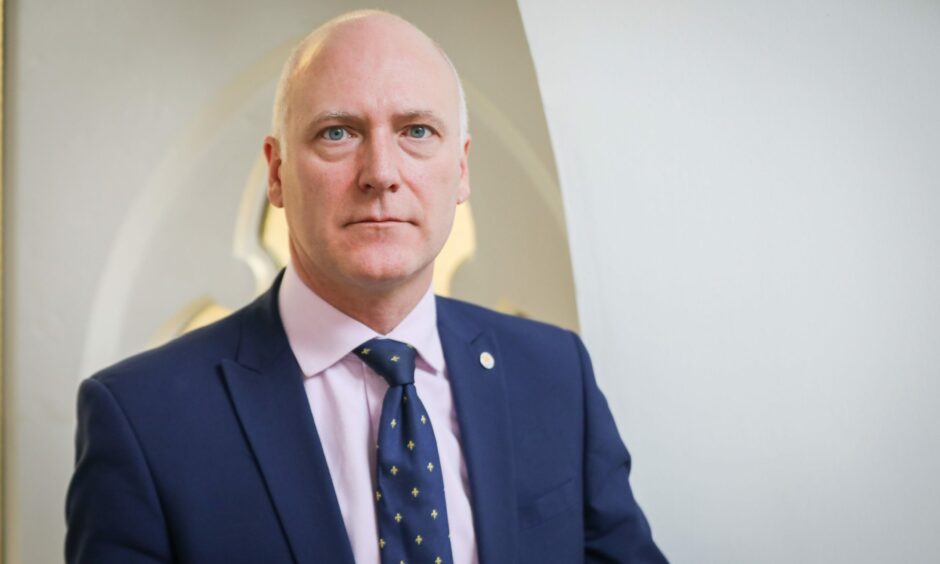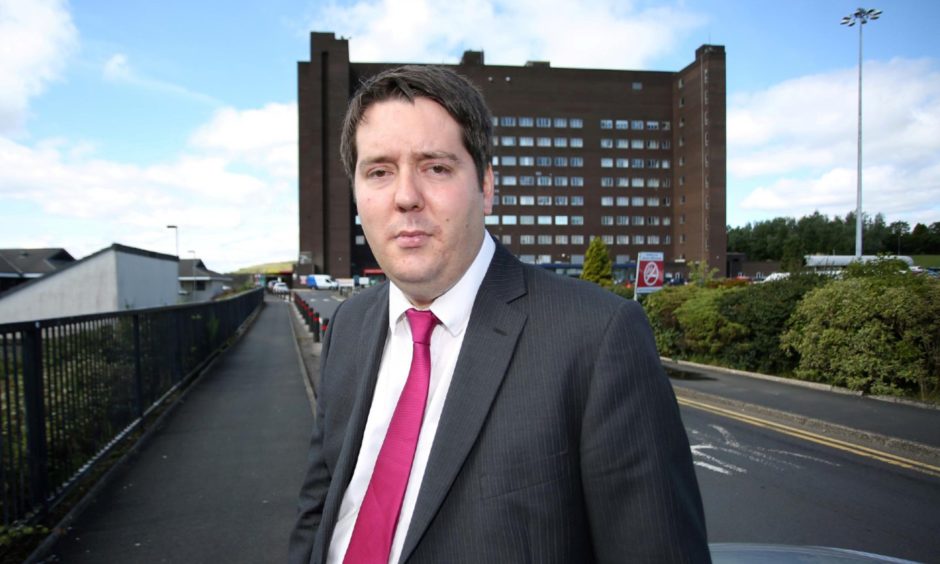Scottish Conservative leader Douglas Ross faces fresh questions over his outside earnings after leaving money banked in his role as a football referee before becoming an MSP off his Holyrood register of interests.
Mr Ross was last paid for being a match official in January – months before he was elected as an MSP.
But political opponents, including the SNP, Scottish Labour and the Greens, say he may have broken Holyrood rules which state members must declare any money earned before they were elected if it could be seen to give the “appearance” of prejudice.
A spokesman for Mr Ross insisted the Scottish Tory leader followed the advice of officials and said the payments “are all in the public domain”.
Tory leader’s earnings under the spotlight
Mr Ross currently holds three jobs: as an MSP in the Highlands and Islands, as MP for Moray and as a matchday official.
He apologised and referred himself to the standards commissioner last week after it emerged he failed to register his MSP salary and earnings from some of his referee appearances in the official register of income at Westminster.
Mr Ross told Parliament officials in London he had earned £5,106.70 from working as an assistant referee since the 2019 general election.
It emerged he had missed out a further £6,728.57 in payments between November and January this year for 16 matches, including the Scottish Cup semi-final between Aberdeen and Celtic.
Mr Ross also did not declare any of these earnings with Holyrood officials, with the only reference to his refereeing roles coming under the voluntary section of his return.
Alongside references to two international trips as part of a delegation of MPs in 2016 and 2021, and being a guest at June’s England v Scotland Euro 2020 match, he states: “I am a member of the Scottish Senior Football Referees Association.”
Should the money have been declared?
Many of the other new intake of MSPs in May provided details of previous earnings on their register of interests, with Labour MSP Paul Sweeney specifically referencing the prejudice test when declaring work for a shipbuilding firm in 2015.
The MSP’s code of conduct states a declarable financial interest meets the prejudice tests if “after taking into account all the circumstances, that interest is reasonably considered to prejudice, or to give the appearance of prejudicing, the ability of the member to participate in a disinterested manner in any proceedings of the Parliament”.
It adds: “In making a decision as to whether an interest meets the prejudice test, a member must consider not just whether the member feels influenced by the existence of the interest but whether a fair minded and impartial observer would consider that it could influence a person acting as an MSP or give the appearance of prejudicing that person’s ability to act impartially.”
Be ‘completely open’ about earnings
In January, Mr Ross used his position as Scottish Conservative leader to repeatedly call on Nicola Sturgeon to use money passed to the Scottish Government from equivalent pandemic spending at Westminster to support Scottish football clubs.
SNP MSP Joe FitzPatrick said Mr Ross must declare the refereeing payments to Scottish Parliament officials and be “completely open” about his earnings.
He said: “Douglas Ross now has further serious questions to answer about his outside financial interests given his failure to declare his football-related income to the Holyrood authorities.
“The rules are quite clear about the need to declare money, even if received before being elected as an MSP, where there can be seen to be even the ‘appearance’ of prejudice.
“And given Mr Ross’s stated intention to carry on refereeing on top of his day jobs as MSP and MP, he must now declare this cash and be completely open about his outside finances going forward.”
Scottish Labour’s business manager, Neil Bibby, said it is “astounding” that Douglas Ross is “still failing to declare earnings in the proper manner”.
“This is just the latest example of scandal and sleaze from Boris Johnson’s Conservatives,” he said.
“Douglas Ross needs to decide whether his focus is on the parliament or the football pitch.”
Meanwhile, Scottish Greens MSP Gillian Mackay said it is time for Douglas Ross “to blow the final whistle on his outside earnings and focus his attention on his work as an elected representative”.
“You’d imagine that as a referee he’d be familiar with the rules but astonishingly just days after ‘forgetting’ to register £30,000 at Westminster there are now questions around his declarations at Holyrood too,” she said.
“It’s time for Mr Ross to give up the outside interests and focus his attention on his constituents.
“Let’s face it, he’d be no great loss to the national game, and it might even give him the time to fill out his long list of declarations correctly.”
‘All payments are in the public domain’
A spokesman for Douglas Ross said: “All these payments were made before Douglas became an MSP. They are all in the public domain.
“When he became an MSP, Douglas asked for guidance from the Scottish Parliament on registering these payments. He has followed their advice and will continue to do so.”
The spokesman declined to provide full details of the advice offered to Mr Ross but said it came shortly after he became an MSP.
Joe FitzPatrick faced his own issues with the register of interests after first being elected to the Scottish Parliament in 2007.
He received a £10,000 golden handshake when he stood down from Dundee City Council before the election but did not immediately declare it.




